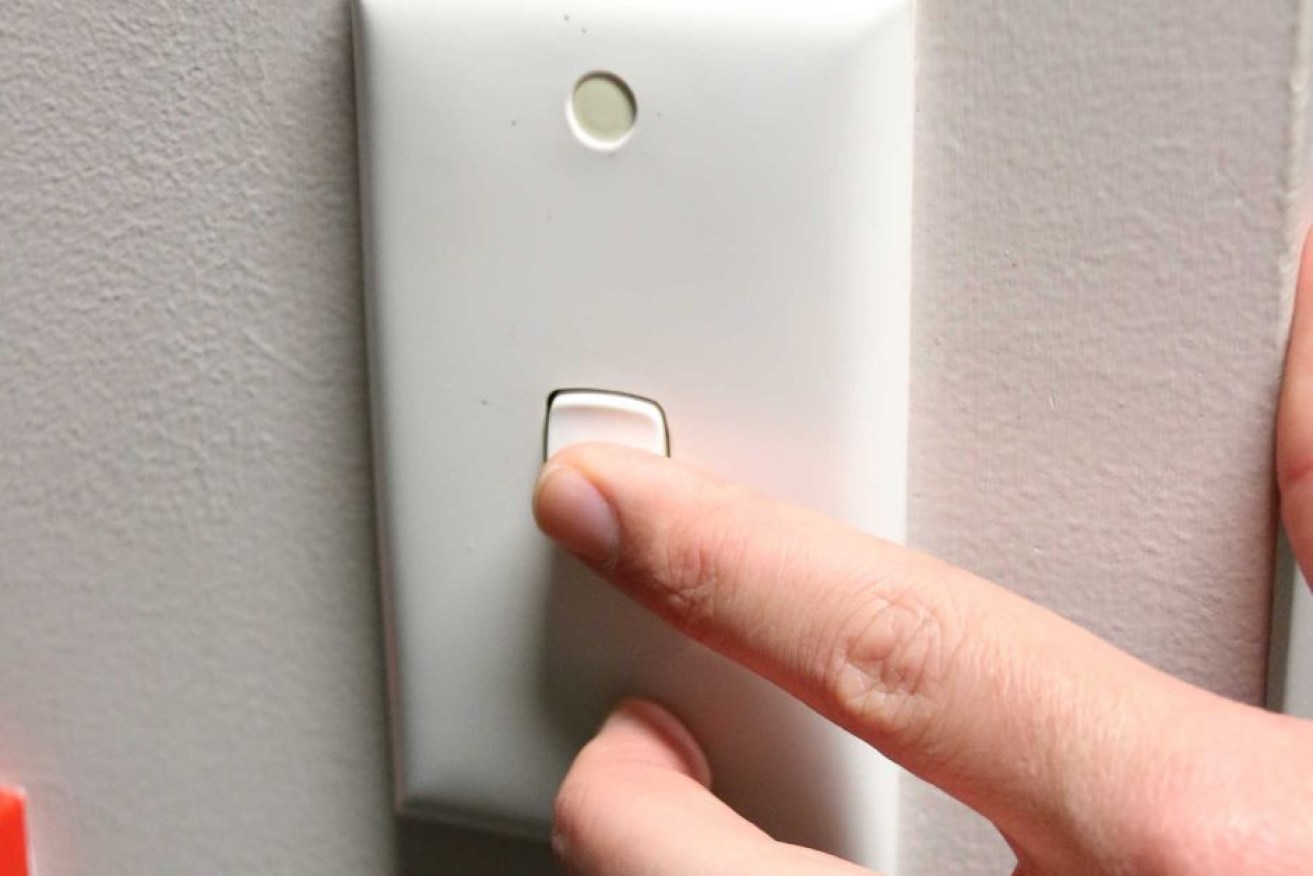How you can actually save money on your power bill

Depending on the type of lights, switching them off might not be worth it. Photo: ABC
Ever had knots in your stomach after opening a power bill?
You’re probably not alone.
Earlier this month, data from Carbon + Energy Markets (CME) MarkIntell found Australian residential customers were paying the highest electricity prices in the world.
And if you’re living in South Australia, you’re likely paying more for power than the rest of the country.
So why are we talking about power bills today?
On Wednesday morning, Prime Minister Malcolm Turnbull and Energy Minister Josh Frydenberg met with energy providers and called for urgent action on companies switching customers to higher-priced contracts.
Mr Turnbull said while there had been “very good progress” there was “more work to do”.
How to reduce your power bill while you wait for reform?
Plenty, said CME director Bruce Mountain.
He gave us his best tips.
Look at your ‘top three’
Firstly, consider heating your water with solar.
“Using the sun to heat water is an obvious first place to start,” Dr Mountain.
“Either using solar water heaters or using heat-pump based water heaters. Decreasing your power consumption used for water heating is a good first thing to do.”
Then, look at your fridge.
“Your fridge … is often the second most important,” he said.
You can check out consumer websites like CHOICE to see what’s going to be the most efficient for all of your needs.
Then, assess your heating and cooling, and your need for air conditioners, which tends to suck up the most energy.
“If you don’t have a reverse-cycle air-conditioner for your heating or cooling then that’s the … third most significant thing that you should do,” Dr Mountain said.
Check out your insulation
This is a big one.
“I think insulating your house to decrease the amount of energy you consume in heating and cooling is a good thing to do,” he said.
“Putting shades over your windows … making sure your house has an eave to shade you from the sun in the summer and allow the sun in in the winter [and] orienting your house to the north.
“All of these are well-known, well-established well-documented, those are the things that households can do.”
He said all of the above should be done at little cost to the household.
How about switching off the lights?
He said depending on the type of lighting, that might not be worth it.
“With modern LED lighting there’s not much you can do to decrease your consumption by switching off your light, it’s not going to make terribly much difference,” he said.
Produce your own energy

You could take energy making into your own hands. Photo: ABC
“The next thing they should do is seek to produce as much electricity themselves through PV (photovoltaic solar panels) on their own roofs,” Dr Mountain said.
“The average price of PV is much lower than the average price of electricity or indeed the marginal price of electricity on the grid.
“And so installing PVs is the place to start for that.”
He said despite the drop in the rebate for solar from the government, the solar market had been growing consistently and “growth rates are higher than they’ve ever been”.
He said price of PV had also dropped.
“It still is economically sensible for a household to install PV,” he said.
Switch providers
Not everyone in Australia has a choice of provider, but Dr Mountain said for those that do, it’s important to be armed with knowledge.
“Shopping around, understanding your bill, finding the best one is for many customers … a way to save,” he said.
“The problem is … it’s very difficult for a customer to know or find out the best deal for them and how much they’ll save.
“In order to work that out they have to analyse their bill not just as consumption, but the prices they pay, and then scan the market for the right offer for their consumption, and their location and their tariff type.
“Even customers on a very simple tariff structures, it’s a difficult thing to do and they need to do it again and again because the market changes so they need to continually be engaged in the market.”
And, this could be about to get easier.
The Prime Minister said it was important for energy companies to make it easier for people to understand how much they would be paying.
“Everybody is time-poor. The truth is retailers benefit from customers’ inertia,” Mr Turnbull said.
“They benefit from people not picking the best plan.
“We are determined to ensure that they do the right thing by their customers, that they care for their customers and ensure that our goal is that no Australian family should be paying more for their electricity than they need.”
Does Dr Mountain follow these power-saving tips?
Yep.
“I have been able to do it personally in my house, I’ve got a four-bedroom house and … it ranges between five and two of us but we have very much lower consumption than the typical household,” Dr Mountain said.
“We use the sun to heat water, we have suitable ways to light the house … we’ve chosen a fairly low-consumption fridge … we don’t heat the house excessively in winter or cool it excessively in summer, we use fans rather than air conditioners.”
-ABC








